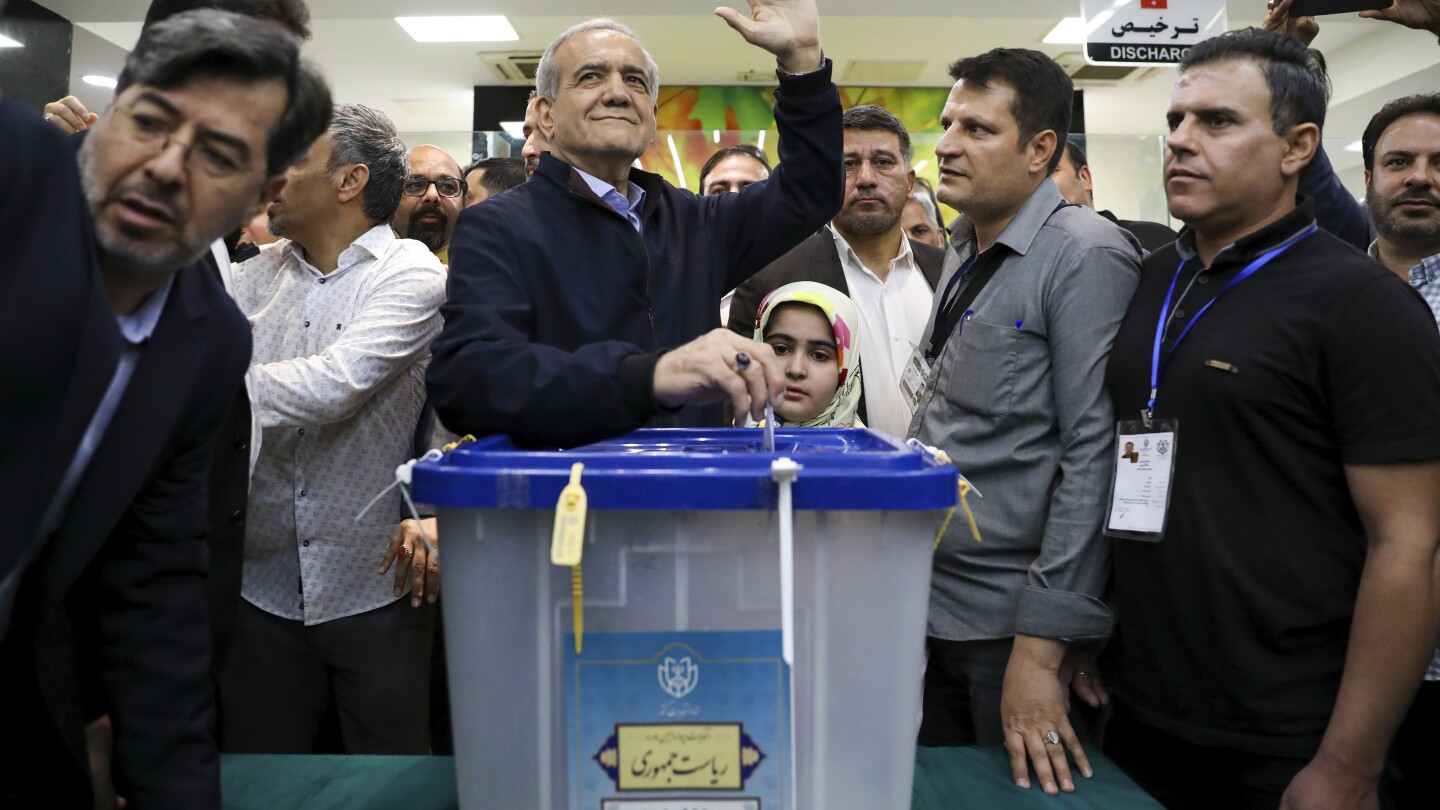In the Presidential election, the 3 choices offered to them by the theocratic establishement garnered just 40% of the vote.
That's the worst turnout since 1979, IOW the worst in the 46 year history of the Islamic Republic.

 apnews.com
apnews.com
What's more, the biggest vote getter was Masoud Pezeshkian, the least hard-line of the three candidates on offer. Some fraction of that has to be taken as public dissatisfaction with the Islamic Republic, IMO, and it could mean the Islamic Republic is in trouble. Should the voters now turn out in the runoff for Perezhkian, it coult create the possibility that the Supreme Leader would nix the voter's choice after approving him as a candidate.
I take this as a vote of no-confidence by the Iranian people in the Islamic Republic.
Context:
In Iran, the candidates are not chosen by some democratic or organic party process; they're picked by the Guardian Council, who answer to the Supreme Leader, as does the President, when elected. The Supreme Leader is elected by the Assembly of Experts.
The Assembly of Experts is elected by the people but all the candidates much be approved by the Supreme Leader.
It's very circular but all roads to power and the exercise thereof begin and end at the Supreme Leader, who is unaccountable.
That's the worst turnout since 1979, IOW the worst in the 46 year history of the Islamic Republic.
Iran to hold runoff election with reformist Pezeshkian and hard-liner Jalili after low-turnout vote
Iran will hold a runoff election to replace the late hard-line President Ebrahim Raisi after an initial vote saw the top candidates not secure an outright win.
What's more, the biggest vote getter was Masoud Pezeshkian, the least hard-line of the three candidates on offer. Some fraction of that has to be taken as public dissatisfaction with the Islamic Republic, IMO, and it could mean the Islamic Republic is in trouble. Should the voters now turn out in the runoff for Perezhkian, it coult create the possibility that the Supreme Leader would nix the voter's choice after approving him as a candidate.
I take this as a vote of no-confidence by the Iranian people in the Islamic Republic.
Context:
In Iran, the candidates are not chosen by some democratic or organic party process; they're picked by the Guardian Council, who answer to the Supreme Leader, as does the President, when elected. The Supreme Leader is elected by the Assembly of Experts.
The Assembly of Experts is elected by the people but all the candidates much be approved by the Supreme Leader.
It's very circular but all roads to power and the exercise thereof begin and end at the Supreme Leader, who is unaccountable.
